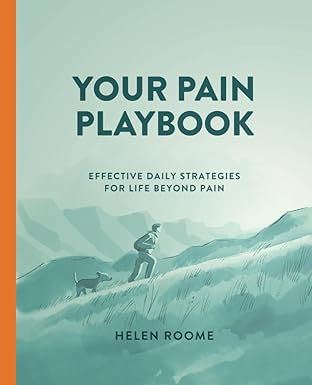Menopause is not about ageing…it is a time to pause, reconnect and redirect.
- Cindy Aberdein

- Apr 26, 2024
- 4 min read
Updated: Oct 3, 2024
Menopause is not about ageing. For many menopause has been associated with aging and so recognising and responding to the changing needs of your body becomes impossible because you are not old enough to be menopausal yet. Just as some people start periods earlier than others, so too can menopause. Just in case you are thinking it…it doesn't mean that if you started your periods early that you will enter the transition earlier than others. There are many factors that can contribute to the age at which hormonal changes start happening in your body. A natural transition to menopause can happen as early thirty-five or forty but mid-forties is more usual. Linking menopause with “I am old” specifically adds a layer of challenge that may not be necessary.

Age is very much a relative concept anyway. At the age of about ten or eleven, I fell off a bicycle that was going down a hill super-fast. I broke my right arm and had various scrapes and bruises. The doctor explained to me that because I was young my bones would heal well. I remember feeling happy to hear this good news. I told the doctor that I had heard that “old people” broke bones easily. When he asked me what age I considered to be old, my answer was twenty-five. I am happy to say that I survived twenty-five and twenty-five times two with no falls and no fractures.
A few years down the track as an older student in a social psychology class I was amused by a class discussion about “older” drivers. These older drivers could be annoying and potentially dangerous if they remained on the road. The consensus was that an individual’s licence should be withdrawn at about fifty. I was left wondering how they would get to university every day with all their parents off the road. Age is relative to your perspective.
More recently, I really felt beyond ancient when I read that in 1966 (the year I was born) a doctor and bestselling author wrote in his book Feminine Forever, that menopausal women were a “natural plague” (Wilson, R.A., 1966) and that with oestrogen replacement women’s “breasts and organs will not shrivel. She will become more pleasant to live with and will not become dull and unattractive.” (Wilson, R.A., 1966) I cannot believe that in my lifetime, (the twentieth century!) this demeaning philosophy was well received.

Research in women’s health has suffered a severe lack of support and funding until recently. Only in the 1990’s (nearly the 21st century!) that it was discovered that estrogen played an important role in a woman’s brain. Bear in mind the hallmark of the 20th century is scientific breakthrough. Human’s explored space for the first time and took their first steps on the moon! Empirical studies are now offering knowledge, understanding and evidence-based practice guidelines for women in the transition to menopause, menopause and beyond. This is the time for change. There has never better time to be on the menopause journey.
Menopause occurs twelve months after your period stops. The time leading up to menopause during which hormonal and biological changes start to take place is known as the transition to menopause or perimenopause. According to the British Menopause Society (sixth edition) the median age for menopause is fifty-one. During this time our hormones start to decline and as the body works towards restoring balance we experience hormonal fluctuations which may for some result in mild to severe symptoms that impact on their daily lives.
It is recognised that menopause is not only related to our reproductive system. We have ‘sex’ hormone receptors all over our bodies. Just a quick preview of just a few of the complex and incredible roles sex hormones play in women’s body. Estrogen plays an important role in a women’s brain, immune system, gut, impacts on the role of neurotransmitters such as serotonin, dopamine, melatonin and cortisol and improves our glucose metabolism. Progesterone also functions in multiple ways in our brain and bodies. It is known as a calming hormone impacting on our nervous system and brain functioning. Progesterone is also known to help us sleep better. No surprise testosterone also works in our brain and bodies on multiple levels and contributes energy, mental acuity, and overall health and sense of well-being.
As sex hormones decline in our body there is a change in women’s health risks presenting a window of opportunity to re-evaluate our health needs. Some women don’t experience much in the way of symptoms and about 25% experience “severe symptoms.” (Briden, L., 2021). With or without symptoms this is a key time to pay attention to our health. Our body needs are different with the shifts taking place and we need to listen and stay in rhythm with these changes. Change presents an opportunity to pause and reconsider our health, to reconnect with our values and to put our health high up on our priority list.

Your self-care for menopause list could include all of the essentials or just somewhere to start. Move your body in a way that you love. Include movement that strengthens your muscles, bones, and joints. Choose whole, unprocessed foods. Focus on a well-balanced and nutrient dense diet and include high fibre food and good fats. Stay well hydrated and avoid surgery foods. Quality and quantity sleep plays a crucial role in your health and well-being. It’s not just about the hours you sleep it is also about what your body is doing while you sleep.
Allow your body the time to regulate and rebalance. Be aware of and manage your stress. Changing hormones place internal stress on your body and so more than ever you need to choose your stresses. Social connections, mindfulness and making time (even just a little bit) for moments of joy every day.
With knowledge women can take steps to support their bodies through this period of change and instability and remediate the impact of declining hormones on their bodies, brains, and sexual well-being. This knowledge not only supports women’s health it empowers them to make informed choices about their long-term health. The transition to menopause and menopause is about more than reproductive health. This time in our lives is also about our brain, whole body and who we are as beings. It is our time to show up for ourselves and redirect towards what we most value and love. So don’t wait, start today with just one thing that you will do to show up for yourself.







Comments